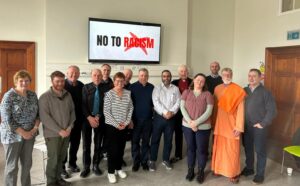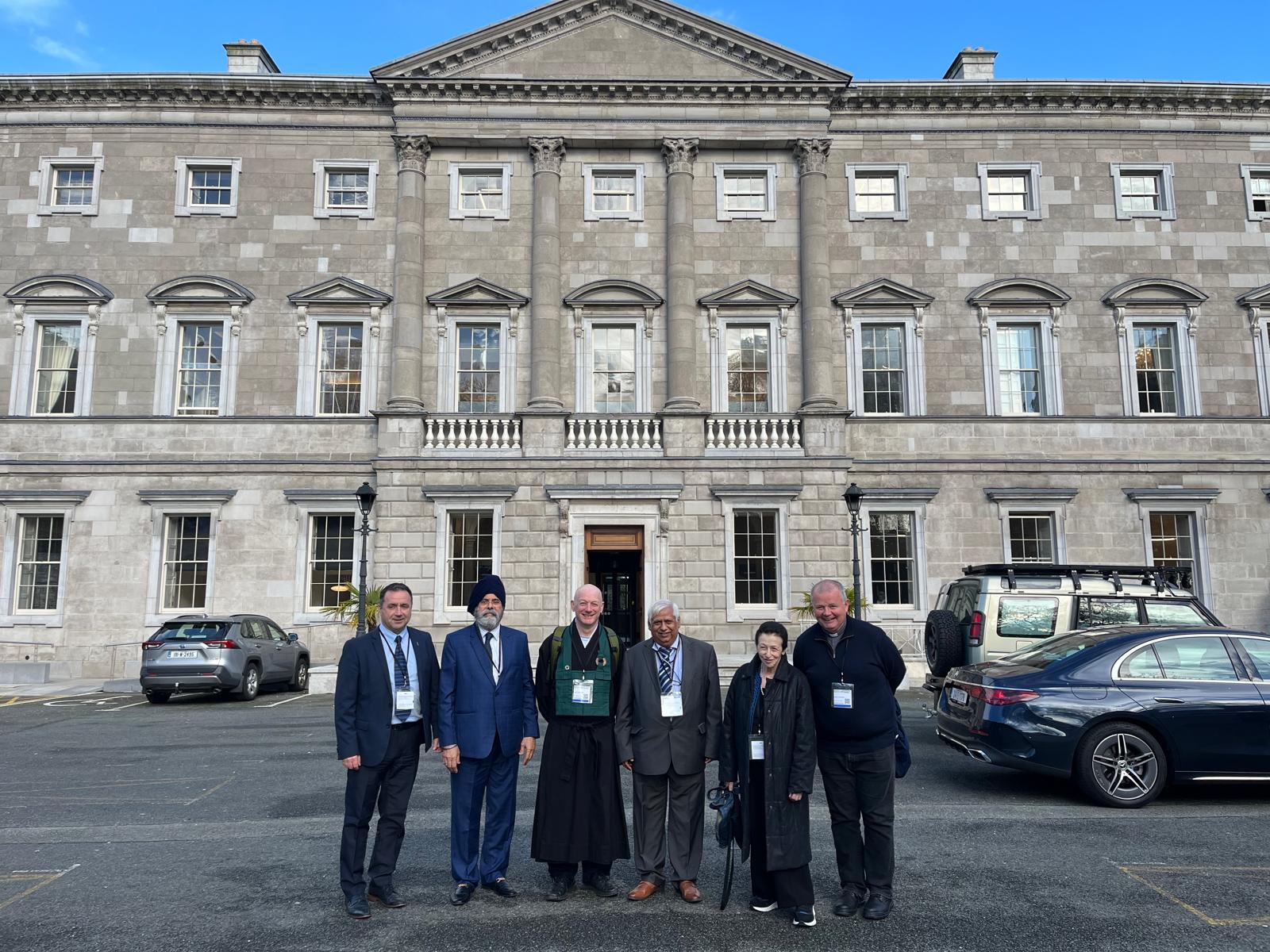Fr Paul Glynn writes about his work with the Dublin City Interfaith Forum which promotes acceptance and cooperation between the diverse religious communities that now exist in Ireland.
Anyone who has had the misfortune of ending up in an overcrowded hospital emergency department in recent years probably received great kindness and care from medical staff with names like Aafiya, Shivansh, Mohamad, Charvi or Ayesha.
Many of these professionals, without whom our medical facilities and many other public services would grind to a halt, are from a vast array of faith traditions including Muslims, Hindus, Sikhs and Buddhists. For many, their faith is the most important thing in their lives; it is what keeps them going as they cope with stressful jobs and living far away from their family and country.
Whenever we face difficulties in life, maybe a family member is seriously ill, or we want to remember a loved one who has passed away, we do not have to think twice about popping into a church to light a candle and say a prayer. But what if you are a Hindu or a Muslim or a Sikh living in Ireland and you need somewhere to say a prayer for help and strength?
After almost 30 years of working for better relations between Christian and Muslim communities in the Southern Philippines I have recently been assigned to work in Ireland and I am so happy to have been invited to join the Dublin City Interfaith Forum (DCIF). Set up in 2012, the Forum works to promote a spirit of acceptance, respect and cooperation between the diverse religious and cultural communities that now exist in Ireland’s capital.
I have had the privilege of being invited by members of the DCIF to visit different places of worship which I would otherwise never have known existed in Dublin. For example, a few Sundays ago I visited the Vedic Hindu Temple (Mandir) in Ballymount in south Dublin. What struck me most was the number of young people, especially teenage boys and girls, who were spending their whole Sunday afternoon praying and chanting with such joy and devotion.

Columban missionaries Fr Paul Glynn (third from left) and Fr Pat Colgan (fifth from left) along with Columban co-worker Michael O’Sullivan (eighth from left) at the launch of the Dublin City Interfaith Forum’s ‘No to Racism’ campaign.
The more I observed these teenagers praying and chanting, the more I asked myself: “how many Irish Catholic teenagers are spending their Sunday afternoon praying?” We hear so much about the young people of Ireland losing their faith. But one thing is certain, the Islamic mosques, the Hindu mandirs and the Sikh gurdwaras of Ireland are full of young people enthusiastically practising their faith.
Hindu and Sikh prayer services are never complete without plenty of deliciously spicy vegetarian food. While chatting with members of the congregation at these mosques or Hindu or Sikh temples the stories they tell are very similar. When they first came to Ireland as students or as young doctors, nurses, or other young professionals, they really struggled until they were able to find a place where they could practice their faith in a welcoming and supportive community.
These faith communities are, for them, their ‘anchor,’ their ‘spiritual home.’ Through a lot of time and effort, community-organising, fundraising, and navigating all the planning laws and regulations, the faith communities eventually manage to build their mosques, temples and houses of worship that are filled each week with enthusiastic congregations, young and old.
The founding members of these communities are very often doctors and other medical professionals who came to Ireland in the 1980s or 90s and who have longed for the day when they can pray with a community in a proper place of worship.
In February 2019, Pope Francis had a very important meeting with the Grand Imam of Al-Azhar University, Cairo, Ahmad Al-Tayyeb – one of the most influential Muslim clerics in the world – at which they signed a joint document: On Human Fraternity for World Peace and Living.

The Golden Rule is found in numerous religions, cultures, ethical systems, secular philosophies, indigenous traditions, and even in the mathematical sciences (e.g. the golden mean). It is often described as a universal ethical principle. It emphasises the values of mutuality, interdependence and reciprocity.
In this joint document Pope Francis and Imam Ahmad appeal to: “Everyone who has faith in God and faith in human fraternity to unite and work together so that they may serve as a guide for future generations to advance a culture of mutual respect in the awareness of the great Divine Grace that makes all human beings brothers and sisters.”
These joint words of the leaders of Catholics and Muslims worldwide inspire us as we work together to promote respect, acceptance and cooperation between the diverse religious and cultural communities that now live in Ireland.
The next time you are at the receiving end of the care and concern of medical staff in a hospital or a clinic, or the kindness of a bus driver or any other public servant who is not originally from Ireland and who comes from a different religious tradition from you, just think that the Divine Grace that inspires their kindness, concern and care for you may very well be the fruit of the hours they spend in prayer each week at their local mosque, temple or house of worship.
Fr Paul Glynn is from Mallow, Co Cork. He was ordained in 1994 and served in the Philippines on mission in the area of interfaith dialogue and more recently as regional director. He is now based in Ireland.
To support the work of Columban Missionaries in the area of interfaith dialogue, please donate at: www.columbans.ie/donate/ or send a cheque to: ‘Columban Missionaries’ to the Far East Office, Dalgan Park, Navan, Co Meath C15 AY2Y or Tel: 00353 46 9098275. Thank you!

